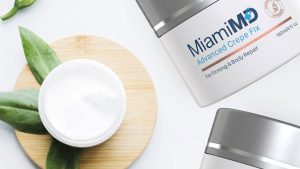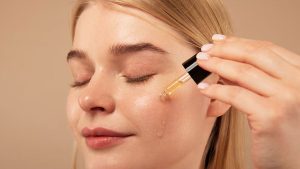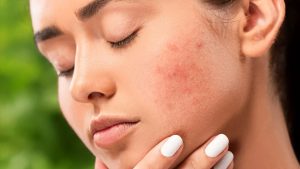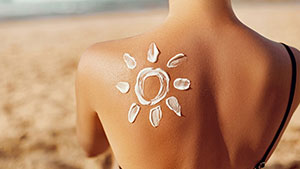How To Get Rid of Dark Spots Naturally
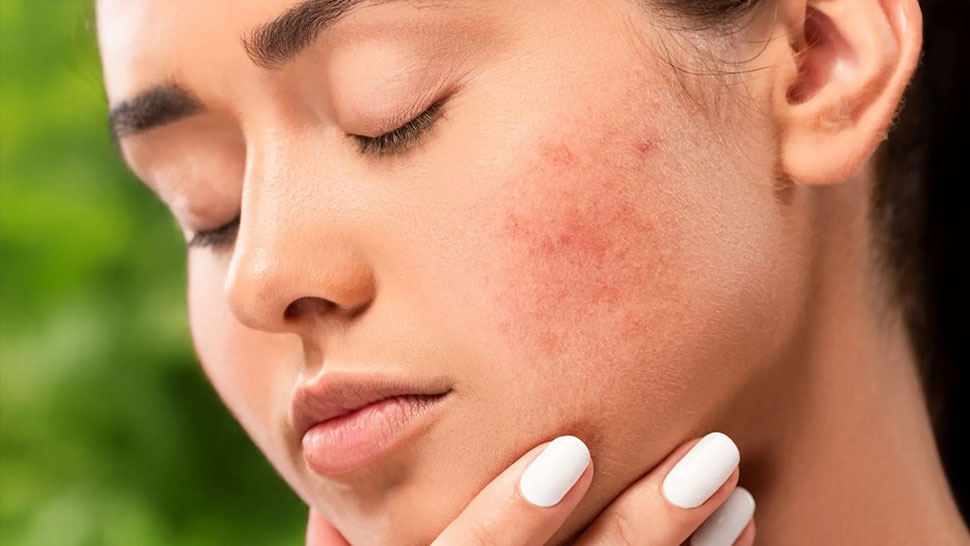
Dark spots can be a frustrating skin concern for many people. Whether they’re caused by aging, sun exposure, hormonal changes, or past breakouts, these spots can make your complexion look uneven.
However, here’s the good news — you don’t need harsh chemicals or expensive treatments to address them. Nature offers powerful solutions that can help you achieve a radiant, even-toned complexion.
From DIY remedies and natural brightening ingredients like aloe vera and green tea extract to simple lifestyle tweaks, there are plenty of natural ways to address dark spots effectively. In this guide, we’ll break down what causes dark spots, explore gentle and natural ways to treat them, and share tips backed by skincare professionals to help you build a routine that works for your skin.
Let’s get started on the path to brighter, healthier skin!
What Are Dark Spots?
Dark spots occur when certain areas of the skin produce excess melanin, the pigment responsible for skin color. Depending on the skin tone and the severity of the pigmentation, these spots can range from light brown to deep black.
While dark spots are generally harmless, they can be a cosmetic concern. As a solution, many women are turning to natural methods to fade or eliminate them.
Dr. Marisa Garshick, a board-certified dermatologist, explains: “Hyperpigmentation is one of the most common skin complaints and can result from a variety of triggers. The key is understanding the cause to treat it effectively” (1).
What Are Common Causes of Dark Spots?
Dark spots can appear for many reasons. Some are caused by internal factors, like hormonal changes, while others result from external triggers, such as sun exposure or past skin injuries. These spots are usually harmless, but they can be frustrating when they make your complexion look uneven.
Understanding what causes dark spots is the first step to addressing them. Once you know what’s behind their appearance, you can choose the best ways to treat or prevent them.
Let’s take a closer look at the most common causes and how they affect your skin:
Aging
As we age, our skin goes through natural changes. One of these changes is the development of age spots, sometimes called liver spots, which are a result of years of sun exposure. These spots typically appear on areas frequently exposed to the sun, such as the face, hands, and shoulders.
Sun Exposure
UV rays are a major cause of dark spots. Prolonged sun exposure can stimulate melanin production, leading to sunspots or solar freckles. Wearing sunscreen daily is one of the best ways to prevent these spots.
Hormonal Changes
Hormonal fluctuations can trigger a condition called melasma. This type of hyperpigmentation often appears as dark, patchy areas on the face and is commonly linked to pregnancy, birth control, or hormone replacement therapy.
Dr. Mona Gohara, a dermatologist, adds, “Hormones can wreak havoc on your skin, and melasma is one of the most challenging forms of hyperpigmentation to treat” (2).
Post-Inflammation
Dark spots can also form after inflammation, commonly referred to as post-inflammatory hyperpigmentation (PIH). This occurs after acne, injuries, or skin irritation. People with darker skin tones are particularly prone to PIH, as their skin produces more melanin.
Are There Natural, Topical Options for Managing Dark Spots?
If you’re hoping to fade dark spots naturally, there are plenty of options to consider. Natural remedies can be a great alternative to harsh chemical treatments, offering a gentler way to brighten your skin without irritation.
Many of these ingredients are not only affordable but may already be sitting in your kitchen or bathroom cabinet.
Here are some of the most effective natural ingredients and how to use them. From brightening products like lemon juice to soothing options like aloe vera, these remedies can help you take a step toward a more even complexion. All while staying kind to your skin.
Lemon Juice
Lemon juice for skin is a popular natural remedy because it contains vitamin C and citric acid, which can help lighten dark spots over time. Plus, antioxidant-rich remedies like this one can offer overall support for skin brightening.
However, dermatologists warn against applying it directly to the skin, as it can cause irritation or make your skin more sensitive to the sun. Instead, dilute it with water or mix it with honey for a gentler application, or opt for a vitamin C serum.
Aloe Vera
Aloe vera is well-known for its soothing properties, but it can also help with hyperpigmentation. It contains aloin, a compound that has been shown to lighten dark spots.
“Aloe vera is a natural healer,” says dermatologist Dr. Joshua Zeichner, “and it’s a great option for those with sensitive skin who want to avoid harsher treatments” (3).
Apple Cider Vinegar
Apple cider vinegar contains acetic acid, which may help lighten pigmentation. To use it, mix one part apple cider vinegar with one part water and apply it to dark spots using a cotton pad. Rinse it off after a few minutes to avoid irritation.
Turmeric
Turmeric is a superfood with powerful soothing and antioxidant properties. Its active compound, curcumin, can help reduce the look of pigmentation and brighten the skin. Mix turmeric with yogurt or honey for a DIY turmeric mask.
Green Tea Extract
Green tea is rich in antioxidants, which can help protect the skin from environmental damage and reduce the appearance of dark spots. You can apply green tea extract directly to your skin or use cooled green tea bags as a compress.
What Dietary Changes Can Help Prevent Dark Spots?
What you eat has a powerful effect on the health and appearance of your skin. Your diet doesn’t just fuel your body. They provide the essential nutrients your skin needs to repair itself, stay hydrated, and defend against damage.
While skincare products and treatments work from the outside, the food you consume works from the inside to support your skin’s natural processes.
A balanced, nutrient-rich diet can help prevent the formation of new dark spots by reducing inflammation, protecting against sun damage, and promoting an even skin tone.
By making thoughtful dietary choices, you can create a strong foundation for healthy, glowing skin that complements your topical skincare routine.
Staying Hydrated
Hydration is essential for maintaining healthy skin. Drinking enough water can help flush out toxins and keep your skin hydrated and plump, reducing the appearance of dark spots over time.
Eating Antioxidant-Rich Foods
Antioxidants help support your skin against free radical damage, which can contribute to hyperpigmentation. Foods like berries, leafy greens, nuts, and dark chocolate are packed with antioxidants that promote a more even complexion.
Incorporating Vitamins C and E
Vitamins C and E are particularly beneficial for skin health. Vitamin C can brighten your skin and reduce the look of pigmentation, while vitamin E helps repair skin damage. Citrus fruits, almonds, and avocados are excellent sources of these vitamins.
How Else Can You Naturally Prevent Dark Spots?
Prevention is just as important as treatment when it comes to managing dark spots. While treating existing spots takes time and effort, stopping new ones from forming can save you from future frustration. Fortunately, preventing dark spots doesn’t have to be complicated.
By adopting a few simple habits and making small adjustments to your daily routine, you can significantly reduce your risk of developing new pigmentation issues.
Protecting your skin from environmental damage, maintaining a healthy lifestyle, and being mindful of your skincare practices are all key to prevention. These strategies help keep dark spots at bay and promote overall skin health and a more even complexion.
Here are some practical, natural ways to prevent dark spots, from sun protection techniques to nourishing your skin from within.
Sun Protection
Sun exposure is one of the leading causes of dark spots, making sunscreen a non-negotiable step in your skincare routine.
Dr. Garshick advises, “Wear a broad-spectrum sunscreen with at least SPF 30 every day, even when it’s cloudy or you’re indoors near windows” (4).
Gentle Skincare Routines
Over-exfoliating or using harsh products can irritate your skin and worsen dark spots. Stick to a gentle skincare routine with hydrating cleansers and soothing ingredients to maintain your skin’s barrier.
Don’t Pick Your Skin
It can be tempting to pick at acne or scabs, but doing so can lead to post-inflammatory hyperpigmentation. Let blemishes heal on their own to avoid creating new spots.
When To Seek Professional Help for Dark Spots
While natural remedies and preventative measures can be effective, some dark spots may require professional treatment. If your spots persist or worsen, consult a dermatologist who can recommend treatments like chemical peels, laser therapy, or prescription creams.
Professional-grade products can also help. For example, Miami MD offers targeted skincare solutions designed to address hyperpigmentation and uneven skin tone. These products combine science-backed ingredients with natural extracts to deliver visible results.
Closing Thoughts
Dark spots can be challenging, but they’re manageable with the right approach. By understanding what causes them and incorporating natural remedies, dietary changes, and preventative habits into your routine, you can gradually achieve a more even and radiant complexion.
Remember, patience is key when it comes to fading dark spots naturally. As Dr. Zeichner says, “Consistency and time are your best allies in treating hyperpigmentation.”
Stay committed to your routine, protect your skin from the sun, and nourish it from the inside out. Your skin will reward you with a healthier, more radiant complexion.
Sources:
- Healthline. “What You Should Know About Hyperpigmentation.”
https://www.healthline.com/health/hyperpigmentation - Medical News Today. “What to know about melasma.”
https://www.medicalnewstoday.com/articles/323715 - NCCIH. “Aloe Vera.”
https://www.nccih.nih.gov/health/aloe-vera - Cleveland Clinic. “Yes, You Should Wear Sunscreen Every Day.”
https://health.clevelandclinic.org/why-you-should-wear-sunscreen-every-day
